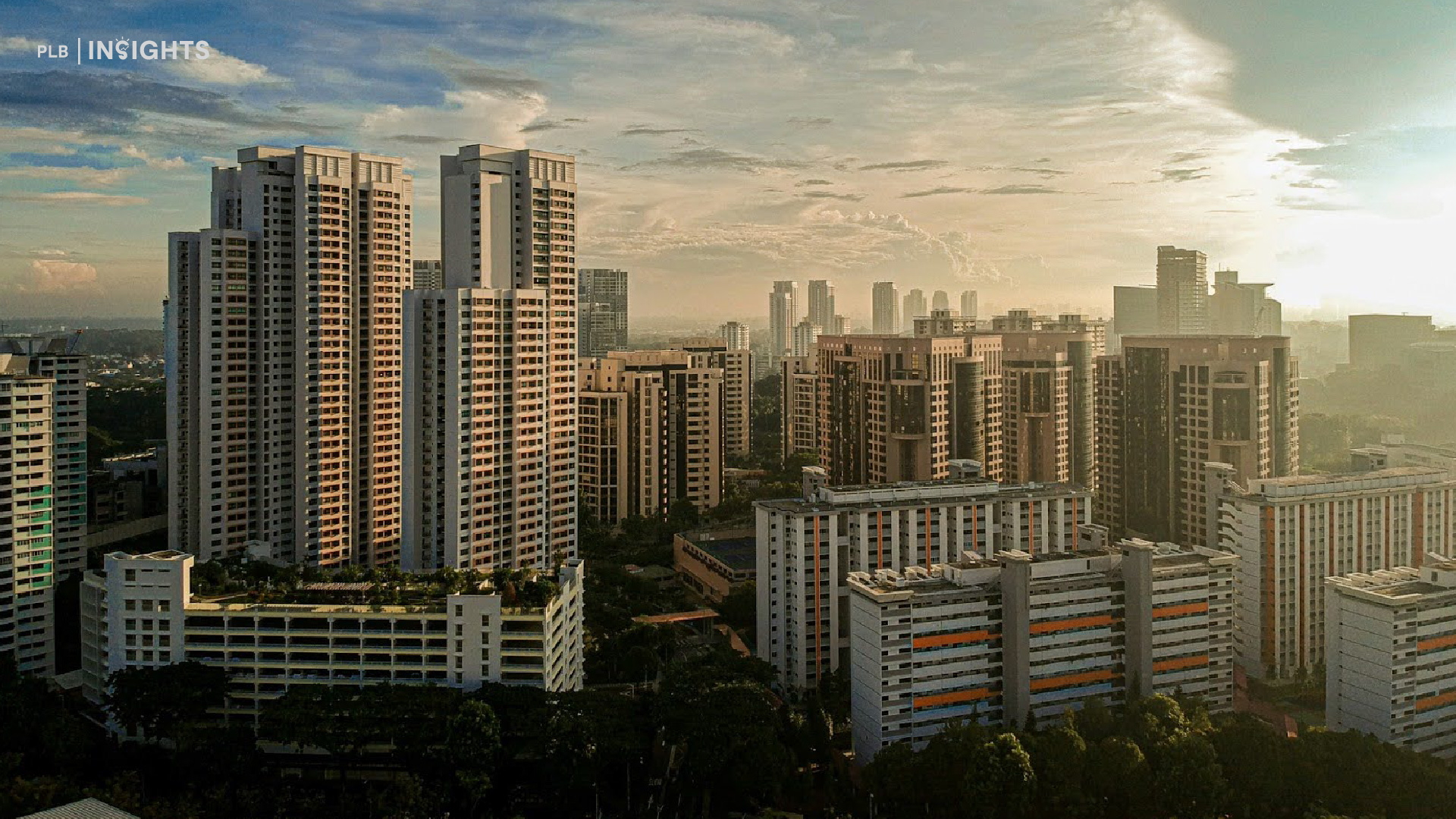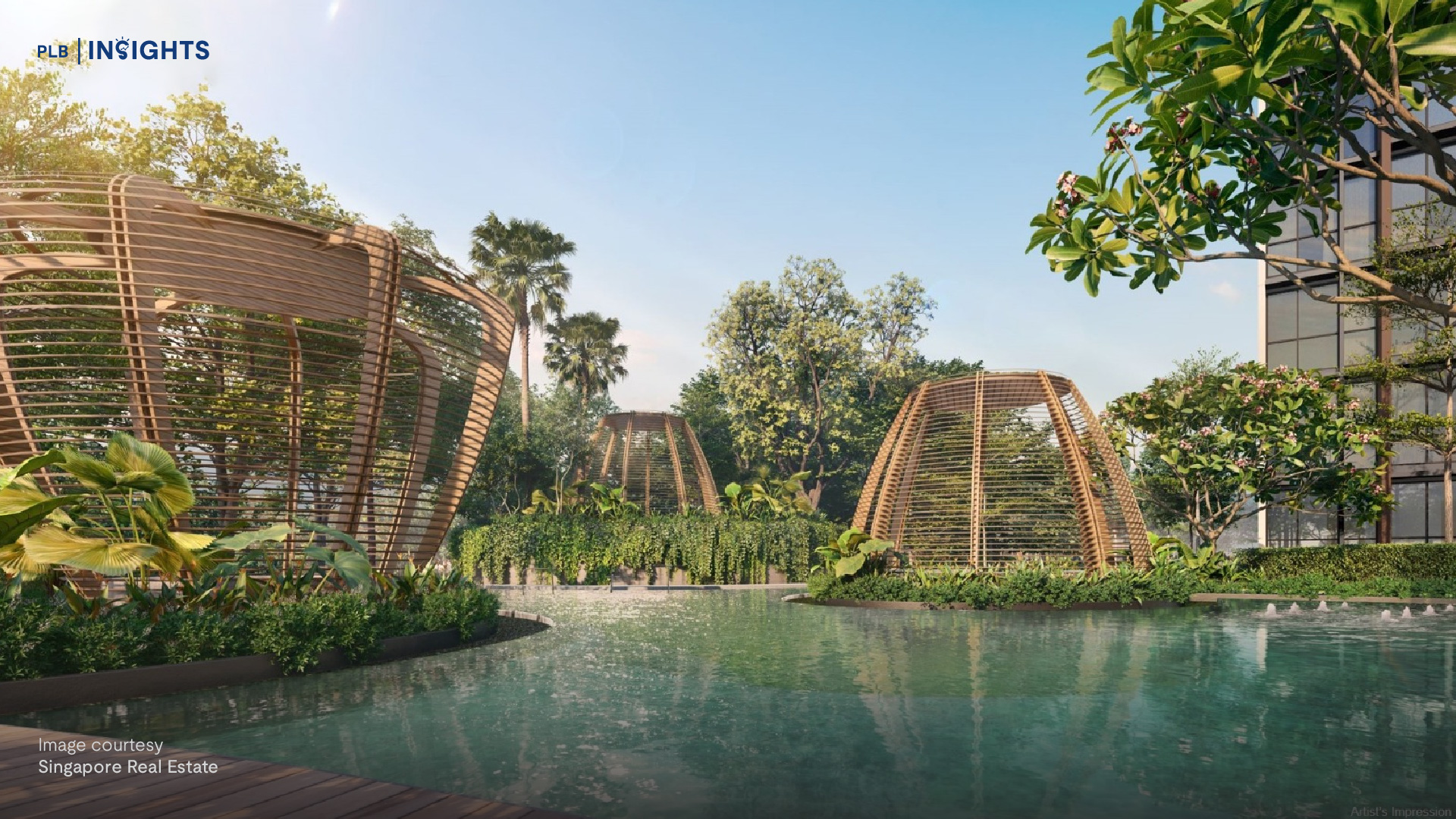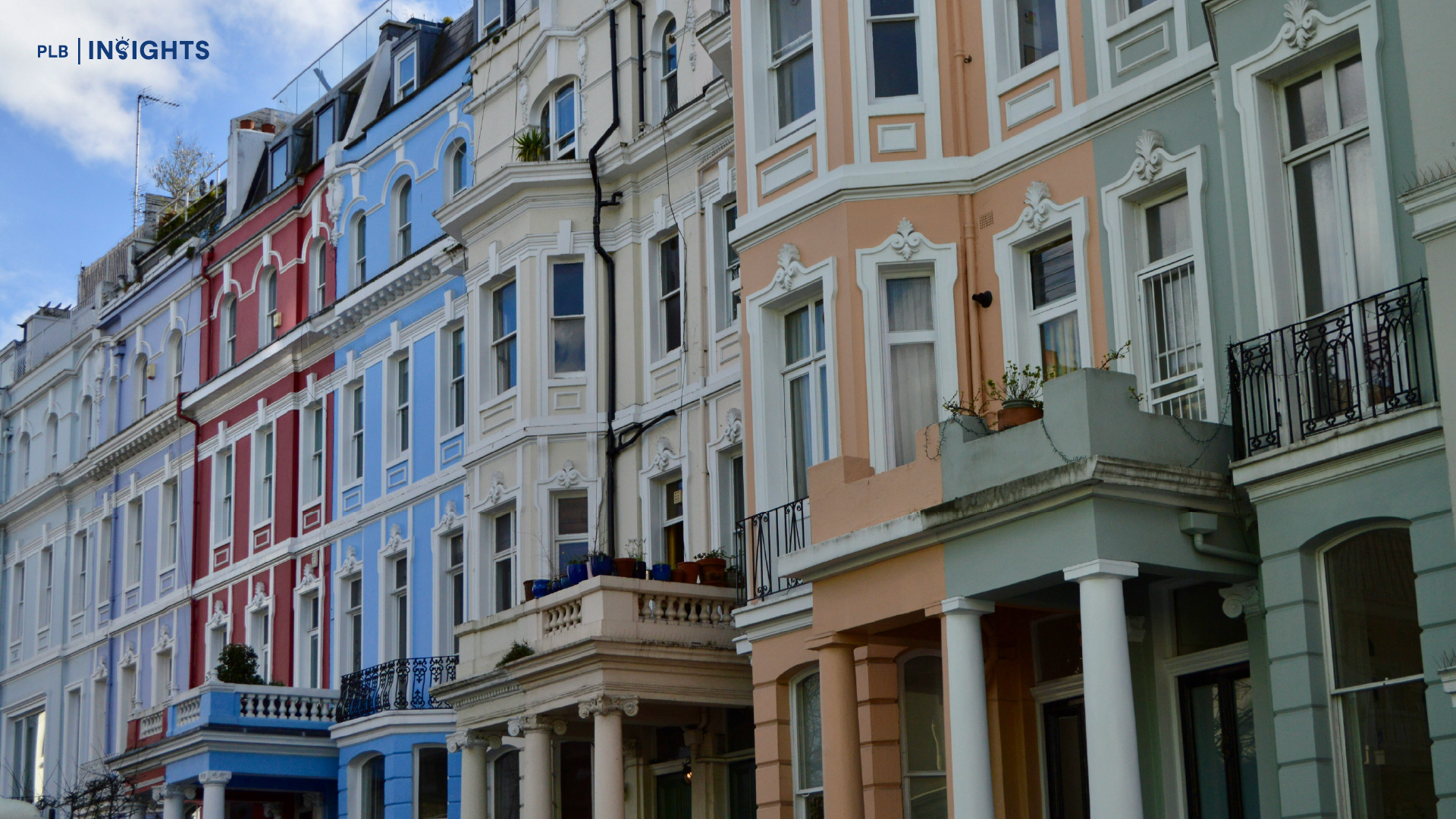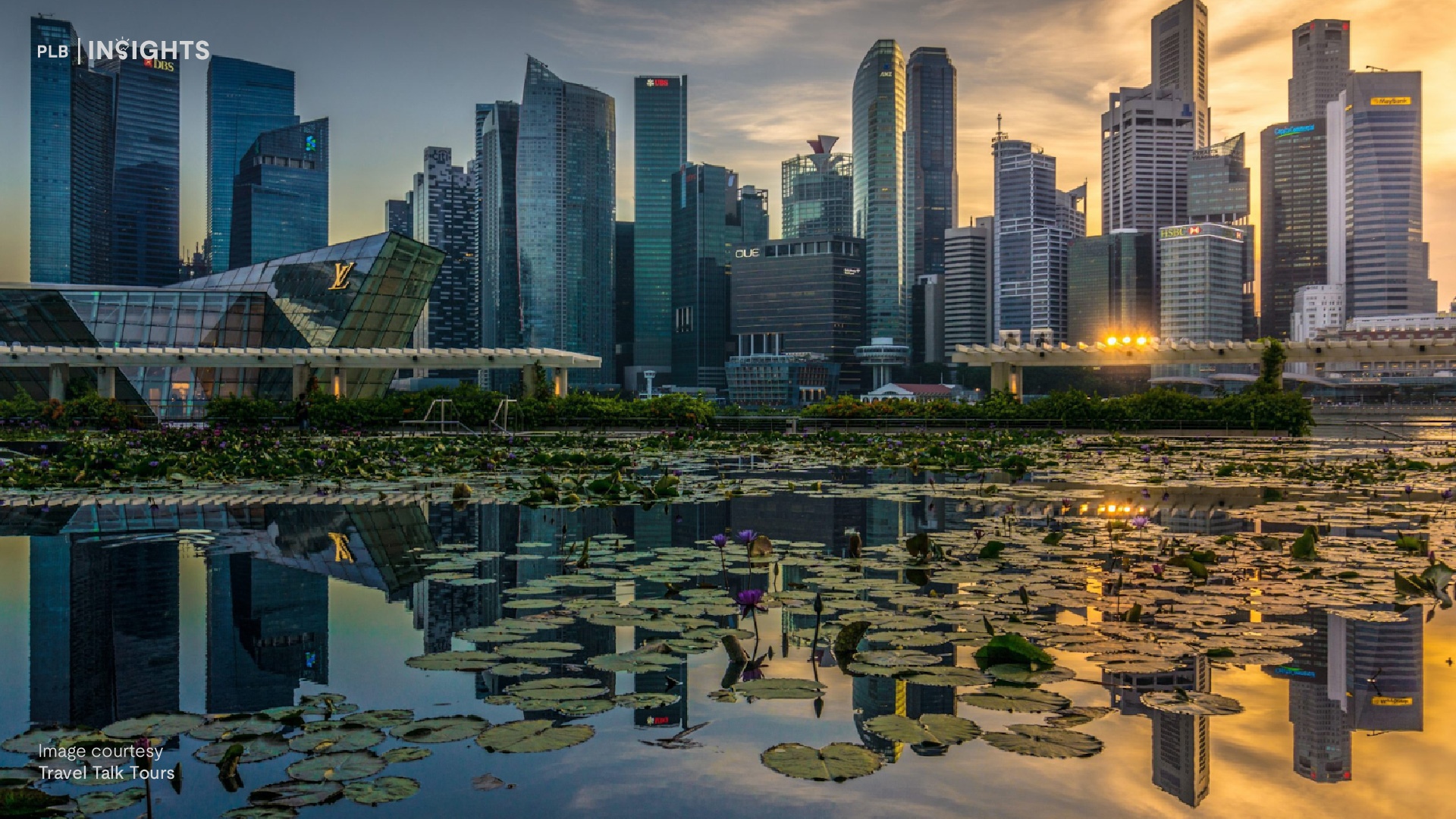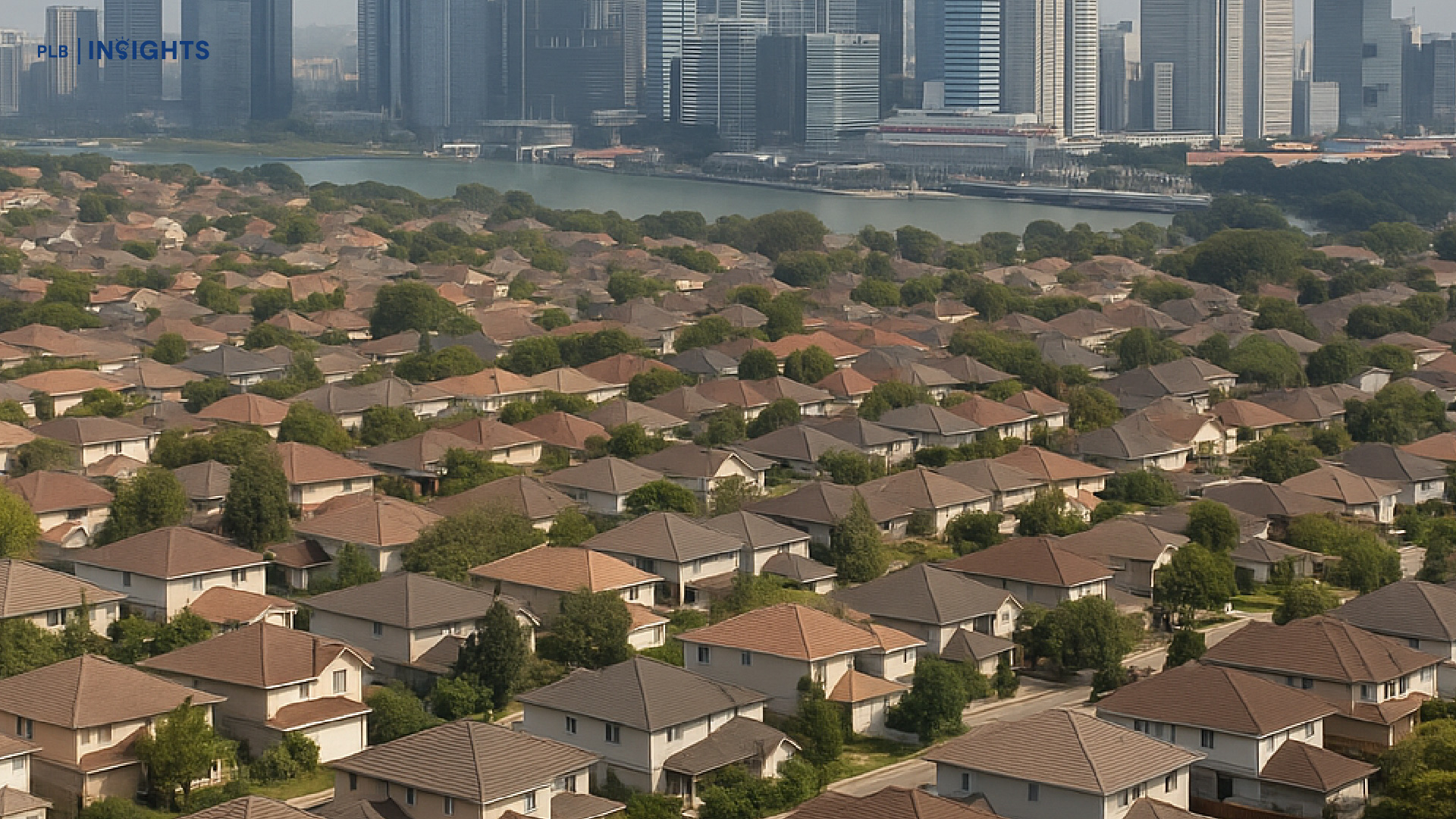
Singapore’s real estate market has consistently demonstrated remarkable resilience over the years, outperforming property markets in many other countries. At the heart of this success lies the 10 Real Estate Economic MOATs – strategic factors carefully built by the Singapore government to foster stability, encourage investments, and support sustained growth. These MOATs have not only attracted external investments but also nurtured strong internal demand, making Singapore’s property market a cornerstone of the nation’s economic and social stability.
In any country, property prices play a critical role in shaping housing policies, wealth accumulation, and economic resilience. Stable and gradually appreciating property prices act as a cornerstone for population retention, helping to maintain a sense of security and ownership among citizens. Additionally, such stability serves as a powerful magnet for attracting new immigrants, contributing to population growth and strengthening the nation’s workforce.
For HDB homeowners in Singapore, these dynamics create a unique landscape of opportunities and motivations. The desire to upgrade from an HDB flat to private property is often driven by a combination of financial aspirations, lifestyle needs, and confidence in the structural integrity of Singapore’s real estate market.
The 10 Real Estate Economic MOATs of Singapore: An In-Depth Look
1. 16 Rounds of Cooling Measures

Singapore’s property market owes much of its resilience to the government’s proactive implementation of 16 rounds of cooling measures since 2009. These policies were designed to curb speculation, ensure sustainable price growth, and maintain housing affordability for Singaporeans. Measures like the Total Debt Servicing Ratio (TDSR), Additional Buyer’s Stamp Duty (ABSD), Seller’s Stamp Duty (SSD), and tighter Loan-to-Value (LTV) ratios have effectively tempered excessive market exuberance. By consistently fine-tuning these measures in response to market conditions, the government ensures that property prices remain robust yet grounded in economic fundamentals.
2. Limited Land Supply

With only 728 square kilometers of land, Singapore faces inherent constraints on its housing supply. The nation’s current housing stock comprises approximately 1.1 million HDB flats, 273,400 condominiums (including ECs), and 73,500 landed properties, totaling around 1.44 million units. This limited supply, coupled with growing demand, underpins the long-term stability of property prices. The scarcity of land also means that properties are viewed as premium assets, creating upward pressure on prices and enhancing their appeal as investment vehicles.
3. A Growing Population Target of 7 Million by 2030

In 2024, Singapore’s population had risen to a historic high of 6.04 million. It is projected to reach 7 million by 2030, driven by natural growth and immigration. This creates sustained demand for housing, particularly in urban and well-connected areas. The government’s careful population planning aligns with its housing strategies to ensure adequate supply, but the increasing population density inevitably adds to the desirability of existing properties, further strengthening their value.
4. Strong Monetary Policies

Singapore’s robust monetary policies have helped the country weather global financial turbulence. During periods of Quantitative Easing (QE) or rising interest rates, Singapore’s central bank—through the Monetary Authority of Singapore (MAS)—has ensured financial stability. These policies directly impact mortgage rates and, consequently, buyer affordability. The controlled environment ensures that the property market remains attractive, even in challenging economic climates, as it benefits from sound fiscal management and a stable currency.
5. Land Controlled by the State

Unlike many countries where land is freely sold to developers, Singapore’s government retains control over land supply. This ensures there is no oversupply that could destabilise the market. Through mechanisms like the Government Land Sales (GLS) program, the state releases land in a calibrated manner to balance market demand and supply. This control fosters confidence among investors and homebuyers, knowing that property values are unlikely to be undermined by excessive development.
6. High Homeownership Rate of Almost 90%


Singapore boasts one of the highest homeownership rates globally, at nearly 90%. This achievement stems from the government’s strong emphasis on public housing and subsidies for HDB flats, which make homeownership accessible to most citizens. High homeownership rates instill a sense of financial security and personal stake in the property market, reducing volatility and ensuring a stable base of demand.
7. Strong Governance
The trust in Singapore’s government is a cornerstone of its real estate market stability. Transparent policies, efficient legal frameworks, and the absence of corruption create a reliable environment for property investments. Homebuyers, investors, and developers alike have confidence that the rules governing the market are consistent and fair, which is crucial for fostering long-term growth and sustainability.
8. Status as a Global Financial Hub

Singapore’s position as a global financial hub further bolsters its property market. The presence of multinational corporations, regional headquarters, and a vibrant banking and finance sector drives demand for residential properties, particularly in the prime districts. The influx of high-net-worth individuals (HNWIs) and expatriates also contributes to the strong demand for luxury housing and rental properties, cementing Singapore’s reputation as a safe haven for property investment.
9. Strong Expatriate Pool Driving Rental Demand
The sizable expatriate population in Singapore underpins a robust rental market. Many expatriates, particularly those in professional roles, seek accommodations in centrally located condominiums or near international schools, driving demand for specific property types. This consistent rental demand provides property investors with steady income streams and reinforces the appeal of Singapore’s real estate market as an investment destination.
10. First Boost From HDB Subsidies

For many Singaporeans, the journey into homeownership begins with subsidised HDB flats alongside CPF housing grants. These subsidies and grants provide an initial boost in wealth accumulation, as they significantly reduce the initial financial barrier, enabling first-time buyers to channel their savings into property investments. Over time, the natural appreciation of HDB flat prices provides a wealth boost, allowing homeowners to either upgrade to larger public flats or transition into private property. This initial boost not only fuels aspirations but also creates liquidity in the property market, ensuring a consistent flow of demand across housing segments.
Moreover, these subsidies are calibrated to meet broader economic and social objectives. By tying housing affordability to rising wages and offering grants tailored to different income groups, the government ensures that HDB homes remain accessible while providing financial stability for homeowners. This stability underpins the entire real estate market, fostering confidence among both local and foreign investors.
Why Upgrade?

HDB owners often aspire to upgrade not just for the prestige associated with private properties but also for various practical reasons. The limited supply of private properties compared to HDB flats (approximately 1:3 ratio) amplifies their appeal. Landed properties are even scarcer, with just 73,000 units, making up a mere 6% of total residential supply. This “hardness” of private assets—stemming from their limited supply—translates to stronger price growth potential, incentivising upgrades for wealth preservation and growth.
Furthermore, the decision to upgrade is frequently influenced by life stage and financial stability. As households grow, families may seek properties with better layouts, larger spaces, and enhanced amenities to improve their quality of living. Private condos often offer facilities like swimming pools, gyms, and security, adding a layer of convenience and comfort that HDB flats may lack.
For others, the desire to upgrade may be tied to investment goals. Private properties, unlike HDB flats, do not have ownership restrictions and are open to foreign buyers and companies, broadening the resale market. With approximately 25% of condos owned by companies, PRs, and foreigners, private properties provide a dynamic investment opportunity with broader buyer appeal.
Moreover, some homeowners view upgrading as a means to future-proof their wealth. The “hardness” of private properties ensures their resilience in the face of economic fluctuations, making them a stable long-term investment. For those looking to secure generational wealth, landed properties—though scarce—offer unmatched exclusivity and value appreciation.
Ultimately, upgrading is driven by a combination of lifestyle aspirations, financial strategy, and the appeal of limited-supply private assets. With the right planning, transitioning from HDB to private property represents not just an improvement in living standards but also a significant step toward financial growth and security.
In Conclusion
Singapore’s property market is built on a resilient framework that attracts not just local homeowners but also global investors. The 10 Real Estate Economic MOATs, coupled with HDB subsidies, form the backbone of our real estate ecosystem, enabling HDB owners to build wealth and aspire to upgrade. This structured growth ensures that every property purchase, from HDB to private, serves as both a home and a robust investment.
Upgrading from HDB to private property is not merely a lifestyle choice—it can be a strategic move to unlock financial potential and secure long-term growth. With a limited supply of private condos and landed homes, the value of these properties remains steadfast, offering opportunities for wealth preservation and appreciation.
If you’re considering making the leap from HDB to private property, understanding your options and the market dynamics is crucial. At PropertyLimBrothers, we specialise in guiding homeowners through this significant transition. Whether it’s finding the right property or understanding market nuances, our team is ready to partner with you to make informed, confident decisions. Let’s work together to turn your property aspirations into a reality. Reach out to us here today!
Disclaimer: Information provided on this website is general in nature and does not constitute financial advice
PropertyLimBrothers will endeavour to update the website as needed. However, information may change without notice and we do not guarantee the accuracy of information on the website, including information provided by third parties, at any particular time. While every effort has been made that the information provided is accurate, individuals must not rely on this information to make a financial or investment decision. Before making any, we recommend you consult a financial planner or your bank to take into account your particular financial situation and individual needs. PropertyLimBrothers does not give any warranty as to the accuracy, reliability or completeness of information which is contained in this website. Except insofar as any liability under statute cannot be executed, PropertyLimBrothers, its employees do not accept any liability for any error or omission on this website or for any resulting loss or damage suffered by the recipient or any other person.

